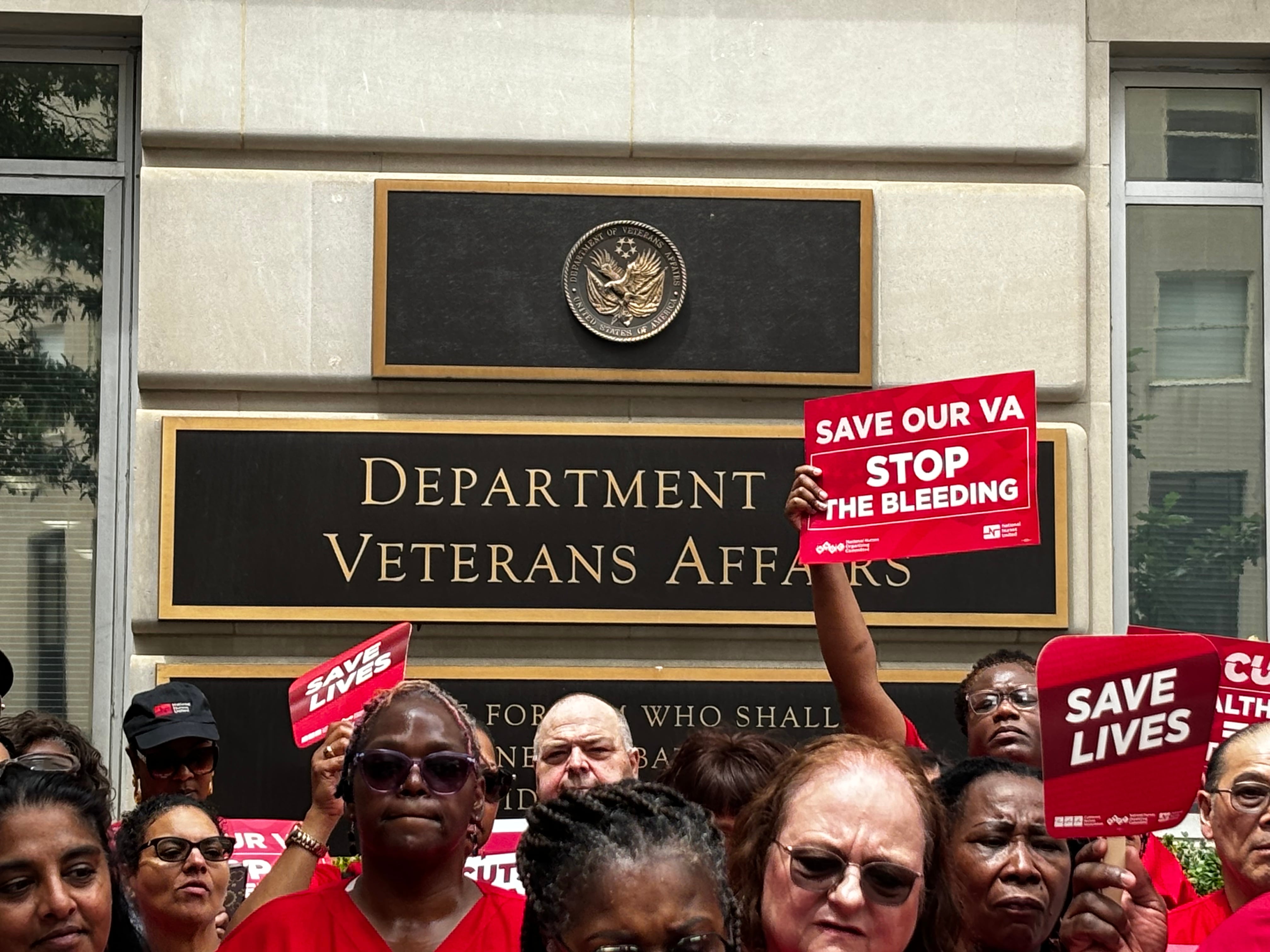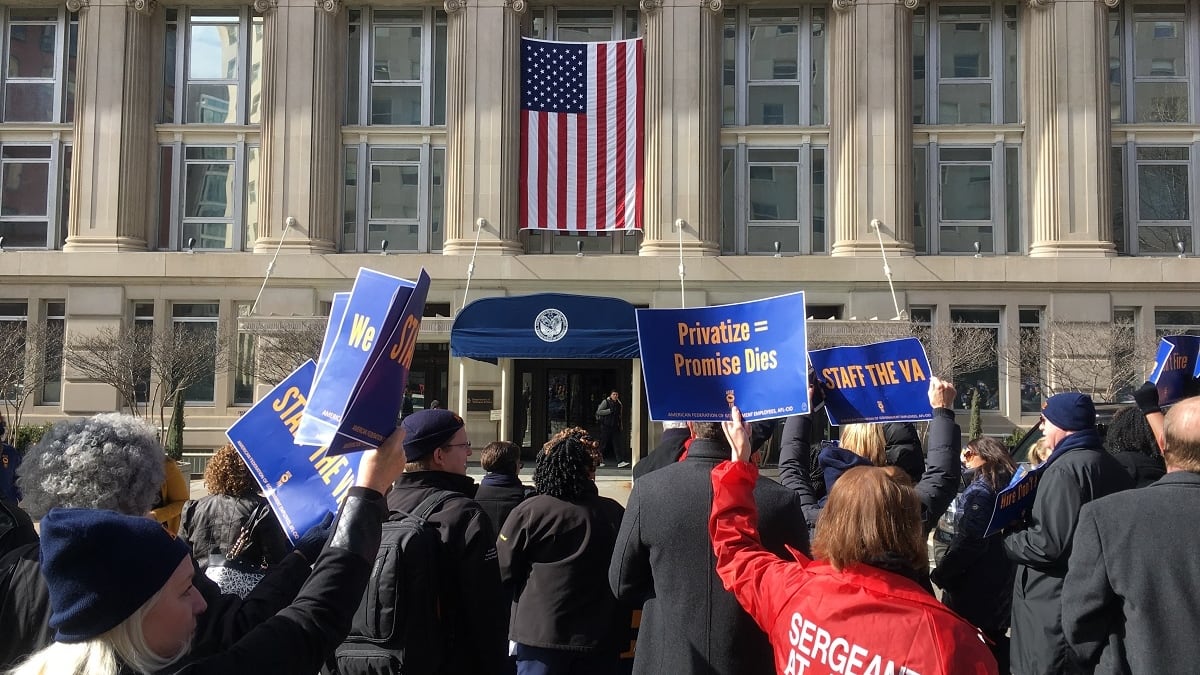Veterans Affairs leaders on Wednesday announced plans to terminate nearly all of its collective bargaining contracts with federal unions, upending employment agreements for hundreds of thousands of department workers.
The move affects members of the American Federation of Government Employees, the AFL-CIO (AFGE), the National Association of Government Employees (NAGE), the National Federation of Federal Employees (NFFE), the National Nurses Organizing Committee/National Nurses United (NNOC/NNU) and the Service Employees International Union (SEIU).
AFGE alone represents about 300,000 employees working for VA. About 80% of the department’s roughly 450,000-person staff are union members.
Department officials said the move was made to “make it easier for VA leaders to promote high-performing employees, hold poor performers accountable, and improve benefits and services to America’s veterans.”
In a statement, VA Secretary Doug Collins attacked the unions as inefficient and harmful to veterans’ care.
“Too often, unions that represent VA employees fight against the best interests of veterans while protecting and rewarding bad workers,” Collins said. “We’re making sure VA resources and employees are singularly focused on the job we were sent here to do: providing top-notch care and service to those who wore the uniform.”
RELATED

Members of President Donald Trump’s administration have fought with union officials for months. In April, VA stopped withholding union dues from most employee paychecks, citing an executive order excluding some federal agencies from labor-management relations programs.
Wednesday’s move does not impact unions representing 4,000 VA police officers, firefighters and security guards. Officials said the executive order does not apply to those positions.
Union leaders for months have protested against proposed cuts at VA and other federal agencies, arguing the smaller staffs will hurt delivery of benefits and health care. They’ve also accused Collins of working to “privatize” VA services by sending more money for medical appointments into civilian hospitals and medical offices, rather than VA clinics.
The unions have also filed numerous lawsuits against the president’s proposed changes to the federal bureaucracy. On Monday, a federal appeals court paused a preliminary injunction that had blocked department heads from making changes to collective bargaining agreements, allowing Wednesday’s contract terminations to move ahead.
At the time, AFGE National President Everett Kelley called the ruling “a setback for fundamental rights in America” and promised continued opposition to Trump’s proposals.
In a statement after Wednesday’s announcement, Kelley criticized Collins for attacking VA workers’ rights.
“[The] decision to rip up the negotiated union contract for majority of its workforce is another clear example of retaliation against AFGE members for speaking out against the illegal, anti-worker, and anti-veteran policies of this administration,” he said.
“We don’t apologize for protecting veteran healthcare and will continue to fight for our members and the veterans they care for.”
Officials from National Nurses United accused the Trump adminstration of “waging class warfare against working people of America” and similarly promised continued legal challenges.
“This president has made it clear he has no respect for the Constitution, but we believe strongly that our right to join together to collectively bargain is constitutionally protected,” the group said in a statement. “It cannot be swept away through an overreach of an executive order based on spurious claims.”
VA officials said that in addition to eliminating unneeded restrictions on hiring and firing policies, breaking union contracts will free up more than 187,000 square feet of office space currently being used by group representatives.
At the start of 2025, federal unions represented more than 1.3 million government workers across a host of agencies.
Leo covers Congress, Veterans Affairs and the White House for Military Times. He has covered Washington, D.C. since 2004, focusing on military personnel and veterans policies. His work has earned numerous honors, including a 2009 Polk award, a 2010 National Headliner Award, the IAVA Leadership in Journalism award and the VFW News Media award.





